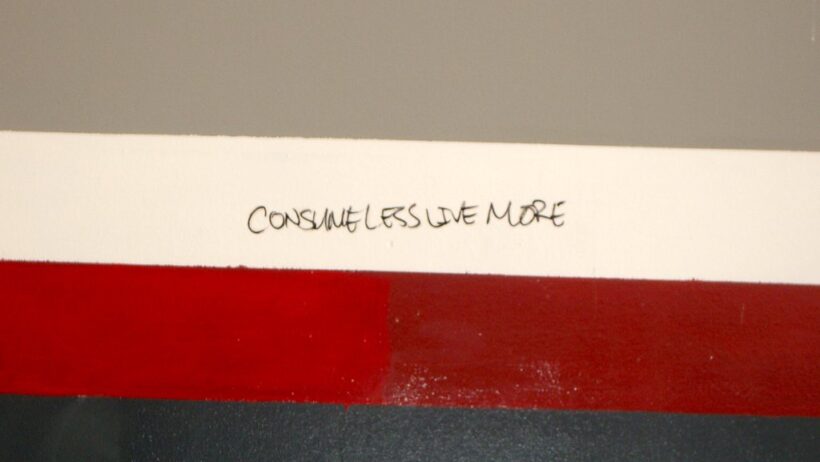In an age characterized by exponential growth and relentless consumerism, the phrase “Consume Less, Cool More” emerges as both a poignant observation and an actionable call to arms. The allure of material possessions often seduces individuals into a cycle of excess, where the accumulation of goods equates to personal worth. Yet, behind this facade lies a more profound reality—a societal inclination toward responsible consumption that has the potential to mitigate the pernicious effects of environmental degradation.
The increasing awareness of global warming and climate change has prompted many to reconsider their consumption habits. The imperative to “consume less” is not simply a socio-political statement; it is a necessary adaptation to the pressing issues confronting our planet. Every product manufactured, every resource extracted, accelerates the depreciation of our environment. The realities of overconsumption manifest in deforestation, pollution, and the depletion of natural resources, urging a significant shift in our consumption ethics.
In contemplating the reasons for this societal fascination with acquiring more, it is critical to address the cultural constructs that underpin our attitudes toward material wealth. The post-industrial world is inundated with a barrage of advertising and social media messages that equate opulence with happiness. This pervasive notion is distilled into the belief that accumulating status symbols enhances one’s identity. However, what if, instead of finding contentment in consumer goods, we derived satisfaction from experiences—where ‘cool’ reflects not the brand one flaunts, but one’s engagement with the world around them?
This paradoxical relationship between consumption and fulfillment invites introspection. In numerous studies, a correlation has emerged between experiential purchases and lasting satisfaction. When people invest in experiences rather than material items, they often find greater joy and contentment. This shift in paradigm leads us to ponder whether the quest for “cool” resides not in the items we possess, but in memories crafted through meaningful interactions.
Many individuals are awakening to the veracity of sustainable living. The journey of responsible consumption begins with the curtailment of excessive buying habits. Embracing minimalism can cultivate a sense of clarity both aesthetically and mentally. By eliminating superfluous possessions, individuals can focus on accruing items that serve genuine purposes, ultimately fostering a more sustainable lifestyle.
Moreover, the ethos of “consume less” transcends mere personal attitude—it encompasses a holistic approach to societal responsibility. When consumers make conscious choices to limit their purchases, they inherently force industries to rethink production methods. Industries are responding, albeit at varying rates, by adopting eco-friendly practices, ensuring that products are not only designed to entrap consumers but also prioritize environmental stewardship.
Product longevity is another key consideration in responsible consumption. The lifespan of an item should ideally correspond to the environmental costs associated with its production. The traditional model of planned obsolescence—a capitalist mechanism that encourages consumers to discard the old in favor of the new—should be challenged. Consumers can advocate for brands that prioritize sustainability, supporting a marketplace where innovation aligns with ecological integrity.
Social responsibility also plays a significant role in responsible consumption. A growing number of consumers are gravitating toward businesses with a commitment to ethical sourcing and eco-friendly practices. By choosing to support those enterprises which prioritize sustainability, consumers wield considerable power, catalyzing change within industries reliant on their patronage. It creates a feedback loop where consumer demand aligns with environmental consciousness, ultimately reshaping the corporate landscape.
Education and awareness thus become paramount. Knowledge dissemination on the ramifications of overconsumption is essential. Engaging in dialogues about the importance of sourcing materials ethically, understanding carbon footprints, and reducing waste is necessary for cultivating a culture rooted in responsible consumption. Schools, communities, and organizations can leverage educational initiatives to foster an understanding of how individual choices contribute to global narratives.
The concept of “cool” must also undergo re-evaluation. The newer generation, often identified as Gen Z, champions authenticity and social justice. Their criteria for what is deemed “cool” integrates valuing sustainability, inclusivity, and ethics—aspects often overlooked in previous generations fixated on superficial markers of success. This cultural shift heralds a new era where “consuming less” becomes synonymous with a responsible lifestyle, reflecting a growing recognition of interconnectedness with one’s environment.
In conclusion, “Consume Less, Cool More” encompasses a robust framework for navigating the complexities of modern society. It strips away the superficial allure of excessive consumerism in favor of a more meaningful existence intertwined with the fabric of our environment. By championing responsible consumption, individuals not only reclaim their agency but also contribute to a larger narrative aimed at sustainability. This transition is not merely an individual endeavor; it is a collective movement that calls for concerted efforts towards reshaping our cultural values, advocating for sustainable practices, and ultimately cultivating a world where the act of consuming resonates with purpose and responsibility. As such, the power of responsible consumption lies not in denial of desire but in the reorientation of those desires towards a future marked by empathy for our planet and all its inhabitants.








